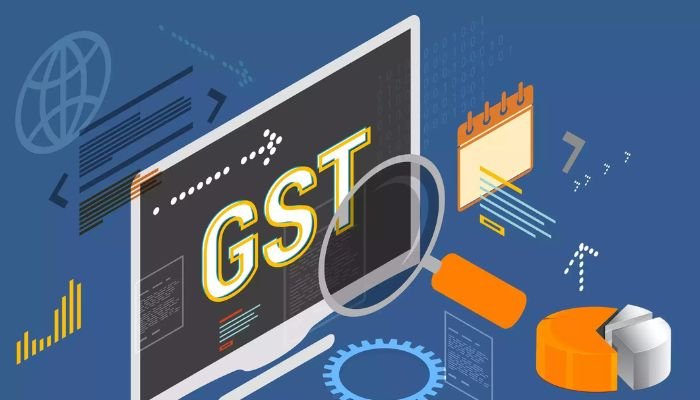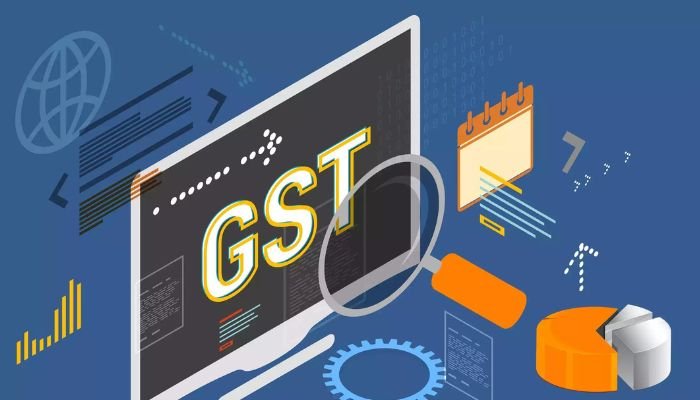In a groundbreaking legal verdict, the Allahabad High Court recently delivered a significant reduction in penalties, setting a precedent for businesses grappling with tax compliance issues. The case in question involved Clear Secured Services Private Limited, a company providing manpower supply services, facing a penalty of Rs. 56,00,952.72 for the delayed payment of taxes collected by the supplier. This ruling carries substantial implications for businesses navigating the complexities of the Goods and Services Tax (GST) regime.
| Table section |
| 1. Introduction |
| 2. Background |
| 3. Court's Observations and Ruling |
| 4.(FAQs) |
| 5. Conclusion |
| 6. Implications for Businesses |
Background:
Clear Secured Services found itself in the crosshairs of the Revenue Department, accused of violating Section 122(1)(iii) of the Central Goods and Services Tax (CGST) Act for not remitting collected GST within the mandated timeframe. An ex-parte order was issued, imposing a hefty penalty of Rs. 56 lakh. The petitioner's subsequent appeal was unsuccessful, leading them to file a writ petition before the Allahabad High Court.

Court's Observations and Ruling:
The High Court, in its meticulous analysis, made key observations that influenced the final verdict:
1. Consideration of Guidelines and Notifications: The court underscored the significance of government guidelines, particularly pointing to the waiver of late fees for filing returns through notifications issued on June 1, 2021. This, it emphasized, should be considered in conjunction with the parameters outlined in Section 126(2) of the CGST Act while evaluating the penalty.
2. Absence of Evidence of Tax Evasion: Notably, the court acknowledged the lack of evidence or allegations suggesting that Clear Secured Services engaged in tax evasion. The focal point of the case was the delayed payment of taxes rather than intentional evasion.
3. Maximum Penalty Applicability: Emphasizing the provisions of Section 122(1)(iii) of the CGST Act, the court asserted that the maximum penalty of Rs. 10,000 could be imposed when there is no evidence of tax evasion. The court indicated that this penalty could have been further mitigated had the Revenue Department considered Section 126(2) along with the issued notifications.
(FAQs)
Q1: What was the initial penalty imposed on Clear Secured Services Private Limited?
A1: The Revenue Department imposed a penalty of Rs. 56,00,952.72 on Clear Secured Services Private Limited for the alleged delay in payment of taxes collected by the supplier.
Q2: What led to the imposition of the penalty?
A2: The petitioner, Clear Secured Services, was accused of violating Section 122(1)(iii) of the CGST Act, as they allegedly collected GST but failed to remit the amount within the prescribed timeframe.
Q3: How did the petitioner respond to the allegations?
A3: The petitioner filed an appeal against the penalty, citing challenges in responding to the allegations due to the impact of COVID-19. However, the appeal was dismissed, leading to the filing of a writ petition.
Q4: What were the key observations of the Allahabad High Court?
A4: The High Court made several key observations, including the consideration of government guidelines, the absence of evidence of intentional tax evasion, and the applicability of the maximum penalty of Rs. 10,000 as per Section 122(1)(iii) of the CGST Act.
Q5: How did the court justify the penalty reduction?
A5: The court justified the penalty reduction by emphasizing that, according to Section 122(1)(iii), the maximum penalty of Rs. 10,000 could be imposed when there is no evidence of tax evasion. It also pointed out that the penalty could have been further reduced if the Revenue Department considered relevant notifications and provisions.
Q6: What role did government guidelines play in the court's decision?
A6: The court considered government guidelines, specifically the waiver of late fees for filing returns through notifications dated June 1, 2021. It stressed that these guidelines should be taken into account alongside the factors outlined in Section 126(2) of the CGST Act when imposing penalties.
Q7: How does this ruling impact businesses dealing with GST compliance?
A7: The ruling serves as a guiding precedent for businesses navigating GST compliance issues. It highlights the importance of understanding and applying relevant legal provisions and government guidelines, offering businesses a basis to argue for proportionate penalties in cases of delayed tax payments without intentional evasion.
Q8: What factors did the court consider in justifying the penalty reduction?
A8: The court considered various factors, including the absence of evidence or allegations of intentional tax evasion by Clear Secured Services. It also emphasized the importance of considering the government's guidelines and notifications, particularly those related to waiving late fees for filing returns.
Q9: How did the court address the impact of COVID-19 on the petitioner's ability to respond to the allegations?
A9: While the court acknowledged the petitioner's challenges in responding to the allegations due to the impact of COVID-19, it focused on the substantive aspects of the case, such as the absence of evidence of intentional tax evasion.
Q10: What is the significance of this case for businesses dealing with GST compliance challenges?
A10: This case holds significant implications for businesses navigating the intricate landscape of GST compliance. It establishes a precedent for a more nuanced and context-aware approach to penalty imposition, urging tax authorities to consider the specific circumstances of each case, especially when there is no evidence of intentional tax evasion.
Conclusion:
In a decisive move, the Allahabad High Court set aside the previous orders and allowed the writ petition filed by Clear Secured Services. This ruling sends a clear message about the necessity of distinguishing between delayed tax payments and intentional evasion. It marks a significant stride towards a more nuanced approach to penalty imposition, urging tax authorities to consider the contextual intricacies of each case.
Implications for Businesses:
This legal victory serves as a guiding light for businesses grappling with GST compliance issues. It underscores the importance of understanding and applying relevant legal provisions and governmental guidelines in tax-related matters. Companies can draw from this case to argue for a more proportionate penalty, particularly when there is no evidence of intentional tax evasion.
In essence, the Allahabad High Court's decision not only provides relief to Clear Secured Services but also sets a precedent that will likely influence future cases, fostering a more balanced and context-aware approach to penalties in the realm of tax compliance.
एक अभूतपूर्व कानूनी फैसले में, इलाहाबाद उच्च न्यायालय ने हाल ही में कर अनुपालन मुद्दों से जूझ रहे व्यवसायों के लिए एक मिसाल कायम करते हुए दंड में महत्वपूर्ण कमी की। विचाराधीन मामले में जनशक्ति आपूर्ति सेवाएँ प्रदान करने वाली कंपनी क्लियर सिक्योर्ड सर्विसेज प्राइवेट लिमिटेड को रुपये के जुर्माने का सामना करना पड़ा। आपूर्तिकर्ता द्वारा एकत्र किए गए करों के विलंबित भुगतान के लिए 56,00,952.72। यह फैसला वस्तु एवं सेवा कर (जीएसटी) व्यवस्था की जटिलताओं से निपटने वाले व्यवसायों के लिए महत्वपूर्ण निहितार्थ रखता है।
| खंड |
| 1. परिचय |
| 2. पृष्ठभूमि |
| 3. अदालत के अवलोकन और निर्णय |
| 4.पूछे जाने वाले प्रश्न(FAQs) |
| 5. निष्कर्ष |
| 6. व्यापारों के लिए परिणाम |
पृष्ठभूमि:
क्लियर सिक्योर्ड सर्विसेज ने खुद को राजस्व विभाग के निशाने पर पाया, जिस पर अनिवार्य समय सीमा के भीतर एकत्रित जीएसटी जमा नहीं करने के लिए केंद्रीय माल और सेवा कर (सीजीएसटी) अधिनियम की धारा 122(1)(iii) का उल्लंघन करने का आरोप लगाया गया। एक पक्षीय आदेश जारी किया गया, जिसमें रुपये का भारी जुर्माना लगाया गया। 56 लाख. याचिकाकर्ता की बाद की अपील असफल रही, जिसके कारण उन्हें इलाहाबाद उच्च न्यायालय के समक्ष एक रिट याचिका दायर करनी पड़ी।

न्यायालय की टिप्पणियाँ और निर्णय:
उच्च न्यायालय ने अपने सूक्ष्म विश्लेषण में प्रमुख टिप्पणियाँ कीं जिन्होंने अंतिम फैसले को प्रभावित किया:
1. दिशानिर्देशों और अधिसूचनाओं पर विचार: अदालत ने सरकारी दिशानिर्देशों के महत्व को रेखांकित किया, विशेष रूप से 1 जून, 2021 को जारी अधिसूचनाओं के माध्यम से रिटर्न दाखिल करने के लिए विलंब शुल्क की छूट की ओर इशारा करते हुए। जुर्माने का मूल्यांकन करते समय सीजीएसटी अधिनियम की धारा 126(2) में उल्लिखित किया गया है।
2. कर चोरी के साक्ष्य का अभाव: विशेष रूप से, अदालत ने सबूतों या आरोपों की कमी को स्वीकार किया जो सुझाव देते हैं कि क्लियर सिक्योर्ड सर्विसेज कर चोरी में लगी हुई हैं। मामले का केंद्र बिंदु जानबूझकर कर चोरी के बजाय करों का विलंबित भुगतान था।
3. अधिकतम जुर्माना प्रयोज्यता: सीजीएसटी अधिनियम की धारा 122(1)(iii) के प्रावधानों पर जोर देते हुए, अदालत ने कहा कि अधिकतम जुर्माना रु। कर चोरी का कोई सबूत नहीं होने पर 10,000 रुपये का जुर्माना लगाया जा सकता है। अदालत ने संकेत दिया कि यदि राजस्व विभाग जारी अधिसूचनाओं के साथ धारा 126(2) पर विचार करता तो इस जुर्माने को और कम किया जा सकता था।
पूछे जाने वाले प्रश्न(FAQs)
Q1: क्लियर सिक्योर्ड सर्विसेज प्राइवेट लिमिटेड पर प्रारंभिक जुर्माना क्या लगाया गया था?
A1: राजस्व विभाग ने रुपये का जुर्माना लगाया। आपूर्तिकर्ता द्वारा एकत्रित करों के भुगतान में कथित देरी के लिए क्लियर सिक्योर्ड सर्विसेज प्राइवेट लिमिटेड पर 56,00,952.72 रुपये का जुर्माना लगाया गया।
Q2: जुर्माना लगाने का कारण क्या है?
ए2: याचिकाकर्ता, क्लियर सिक्योर्ड सर्विसेज पर सीजीएसटी अधिनियम की धारा 122(1)(iii) का उल्लंघन करने का आरोप लगाया गया था, क्योंकि उन्होंने कथित तौर पर जीएसटी एकत्र किया था लेकिन निर्धारित समय सीमा के भीतर राशि भेजने में विफल रहे।
Q3: याचिकाकर्ता ने आरोपों पर क्या प्रतिक्रिया दी?
A3: याचिकाकर्ता ने COVID-19 के प्रभाव के कारण आरोपों का जवाब देने में चुनौतियों का हवाला देते हुए जुर्माने के खिलाफ अपील दायर की। हालाँकि, अपील खारिज कर दी गई, जिसके कारण रिट याचिका दायर की गई।
Q4: इलाहाबाद उच्च न्यायालय की प्रमुख टिप्पणियाँ क्या थीं?
ए4: उच्च न्यायालय ने कई प्रमुख टिप्पणियाँ कीं, जिनमें सरकारी दिशानिर्देशों पर विचार, जानबूझकर कर चोरी के साक्ष्य की अनुपस्थिति, और रुपये के अधिकतम जुर्माने की प्रयोज्यता शामिल है। सीजीएसटी अधिनियम की धारा 122(1)(iii) के अनुसार 10,000।
Q5: अदालत ने जुर्माना कम करने को कैसे उचित ठहराया?
ए5: अदालत ने इस बात पर जोर देकर जुर्माना कटौती को उचित ठहराया कि, धारा 122(1)(iii) के अनुसार, अधिकतम जुर्माना रु. कर चोरी का कोई सबूत नहीं होने पर 10,000 रुपये का जुर्माना लगाया जा सकता है। यह भी बताया गया कि यदि राजस्व विभाग प्रासंगिक अधिसूचनाओं और प्रावधानों पर विचार करता तो जुर्माना और कम किया जा सकता था।
Q6: अदालत के फैसले में सरकारी दिशानिर्देशों ने क्या भूमिका निभाई?
ए6: अदालत ने सरकारी दिशानिर्देशों पर विचार किया, विशेष रूप से 1 जून, 2021 की अधिसूचनाओं के माध्यम से रिटर्न दाखिल करने के लिए विलंब शुल्क की छूट। इसने जोर देकर कहा कि इन दिशानिर्देशों को सीजीएसटी अधिनियम की धारा 126(2) में उल्लिखित कारकों के साथ ध्यान में रखा जाना चाहिए। जुर्माना लगाना.
Q7: यह निर्णय जीएसटी अनुपालन से निपटने वाले व्यवसायों को कैसे प्रभावित करता है?
ए7: यह फैसला जीएसटी अनुपालन मुद्दों से निपटने वाले व्यवसायों के लिए एक मार्गदर्शक मिसाल के रूप में कार्य करता है। यह प्रासंगिक कानूनी प्रावधानों और सरकारी दिशानिर्देशों को समझने और लागू करने के महत्व पर प्रकाश डालता है, व्यवसायों को जानबूझकर कर चोरी के बिना विलंबित कर भुगतान के मामलों में आनुपातिक दंड के लिए बहस करने का आधार प्रदान करता है।
प्रश्न8: अदालत ने जुर्माना कम करने को उचित ठहराने में किन कारकों पर विचार किया?
ए8: अदालत ने विभिन्न कारकों पर विचार किया, जिनमें सबूतों की अनुपस्थिति या क्लियर सिक्योर्ड सर्विसेज द्वारा जानबूझकर कर चोरी के आरोप शामिल हैं। इसने सरकार के दिशानिर्देशों और अधिसूचनाओं पर विचार करने के महत्व पर भी जोर दिया, विशेष रूप से रिटर्न दाखिल करने के लिए विलंब शुल्क माफ करने से संबंधित।
प्रश्न9: अदालत ने याचिकाकर्ता की आरोपों का जवाब देने की क्षमता पर सीओवीआईडी -19 के प्रभाव को कैसे संबोधित किया?
A9: जबकि अदालत ने COVID-19 के प्रभाव के कारण आरोपों का जवाब देने में याचिकाकर्ता की चुनौतियों को स्वीकार किया, उसने मामले के महत्वपूर्ण पहलुओं पर ध्यान केंद्रित किया, जैसे जानबूझकर कर चोरी के सबूतों की अनुपस्थिति।
प्रश्न10: जीएसटी अनुपालन चुनौतियों से निपटने वाले व्यवसायों के लिए इस मामले का क्या महत्व है?
ए10: यह मामला जीएसटी अनुपालन के जटिल परिदृश्य को समझने वाले व्यवसायों के लिए महत्वपूर्ण निहितार्थ रखता है। यह जुर्माना लगाने के लिए अधिक सूक्ष्म और संदर्भ-जागरूक दृष्टिकोण के लिए एक मिसाल कायम करता है, कर अधिकारियों से प्रत्येक मामले की विशिष्ट परिस्थितियों पर विचार करने का आग्रह करता है, खासकर जब जानबूझकर कर चोरी का कोई सबूत नहीं होता है।
निष्कर्ष:
एक निर्णायक कदम में, इलाहाबाद उच्च न्यायालय ने पिछले आदेशों को रद्द कर दिया और क्लियर सिक्योर्ड सर्विसेज द्वारा दायर रिट याचिका को अनुमति दे दी। यह निर्णय विलंबित कर भुगतान और जानबूझकर कर चोरी के बीच अंतर करने की आवश्यकता के बारे में एक स्पष्ट संदेश भेजता है। यह जुर्माना लगाने के लिए अधिक सूक्ष्म दृष्टिकोण की दिशा में एक महत्वपूर्ण प्रगति का प्रतीक है, कर अधिकारियों से प्रत्येक मामले की प्रासंगिक जटिलताओं पर विचार करने का आग्रह करता है।
व्यवसायों के लिए निहितार्थ:
यह कानूनी जीत जीएसटी अनुपालन के मुद्दों से जूझ रहे व्यवसायों के लिए एक मार्गदर्शक के रूप में कार्य करती है। यह कर-संबंधी मामलों में प्रासंगिक कानूनी प्रावधानों और सरकारी दिशानिर्देशों को समझने और लागू करने के महत्व को रेखांकित करता है। कंपनियां इस मामले से अधिक आनुपातिक जुर्माने की दलील दे सकती हैं, खासकर तब जब जानबूझकर कर चोरी का कोई सबूत न हो।
संक्षेप में, इलाहाबाद उच्च न्यायालय का निर्णय न केवल स्पष्ट सुरक्षित सेवाओं को राहत प्रदान करता है, बल्कि एक मिसाल भी स्थापित करता है जो भविष्य के मामलों को प्रभावित करेगा, जिससे कर अनुपालन के क्षेत्र में दंड के प्रति अधिक संतुलित और संदर्भ-जागरूक दृष्टिकोण को बढ़ावा मिलेगा।



